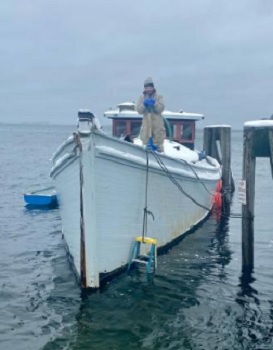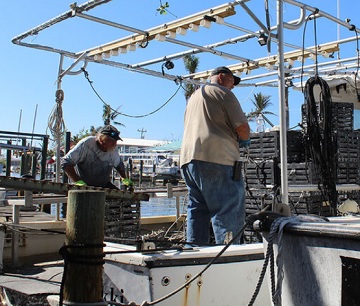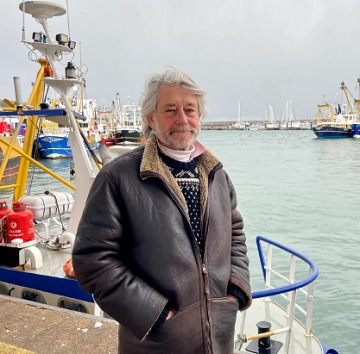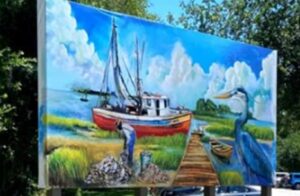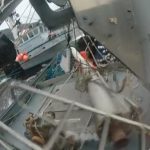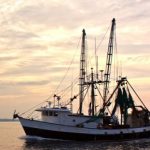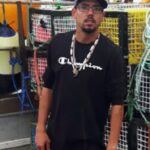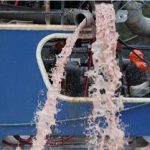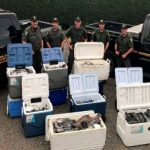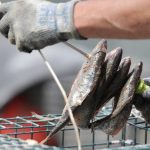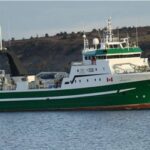Author Archives: borehead - Moderator
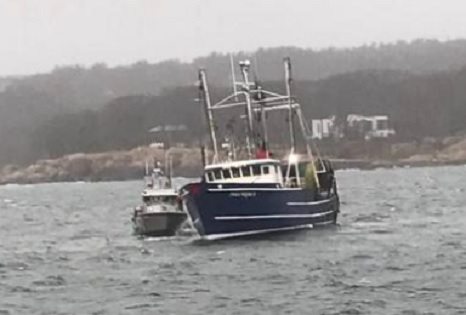
16-hour Coast Guard tow brings F/V Miss Trish II home
The crew of a Gloucester fishing vessel spent about 12 hours adrift far from shore after its transmission failed and before the Coast Guard towed it home. Coast Guard officials, responding to an emergency call from the Miss Trish II were able to reach the boat about 75 miles offshore over the weekend and tow her safely back to port. Jim Bridges, commanding officer at U.S. Coast Guard Station Gloucester said none of the six men aboard the Miss Trish II were injured during the incident. Crew on the Miss Trish II called the Coast Guard around 5 p.m. Saturday, Bridges said, indicating the ship’s engine would not start. >click to read< 18:34

NEFMC Council Executive Director Tom Nies Announces Retirement
The New England Fishery Management Council opened its January 24-26, 2023 meeting in Portsmouth, NH with the news that Executive Director Thomas A. Nies, a 25-year veteran of the Council staff, will be retiring this summer. The Council will immediately initiate a nationwide search for his replacement. Tom joined the Council staff in 1997. He first worked on the Atlantic Herring Fishery Management Plan and then spent 13 years as the Council’s lead analyst for groundfish. In that role, he led the Groundfish Plan Development Team (PDT), as he did the Herring PDT beforehand. Tom also helped develop a standardized bycatch reporting methodology for Northeast fisheries. He became Executive Director in 2013. >click to read< 14:29
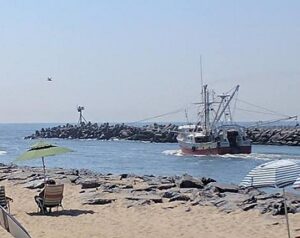
Long awaited dredging of the Manasquan Inlet in New Jersey is finally taking place
There is news all mayors and towns along the coastal towns from the southern shore end of Monmouth County and from the northern barrier island communities in Ocean County have longed to hear: that dredging will commence in the Manasquan Inlet. An announcement was made on Monday afternoon by U.S. Congressman Chris Smith (R – Monmouth/Ocean) that the U.S. Army Corps of Engineers head to the Manasquan Inlet as early as this week to commence a massive dredging operation which will help marine traffic and beaches. The dredging project will be split between the Manasquan Inlet and Shark River Inlet with the ladder getting a primary focus from the Army Corps of Engineers. >click to read< 12:38
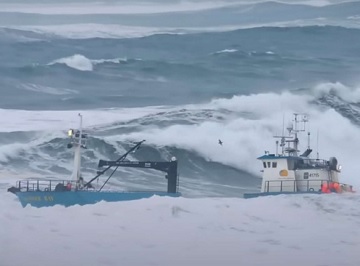
The Deadliest Catch and Other Crab Fishermen Need to Find a New Alaskan Spot Thanks to Climate Change
Even if you’ve only been a fan of Discovery’s “Deadliest Catch” for a short period of time, it’s still pretty obvious that the list of essential steps needed for the featured captains and boats to rake in a season’s worth of seafood remains consistent. On top of a meticulously maintained boat, needed are traps, bait, backup equipment, a solid crew, and more than a handful of other necessities. Of course, the most important detail is the one thing these brave fishermen are there for in the first place, and that’s the crab itself. However, due to climate change, the fishing industry on the Bering Sea has been flipped on its head. >click to read< 11:31

Industrial wind: Sierra Club should stick to their own back yard and leave mine alone
When I go to the beach, which I do almost every day, I prefer to look out on an empty ocean where the only sign of civilization is a fishing boat or two. I can see why a giant multinational energy company would want to spoil that view with 900-foot wind turbines that generate both electricity and money. But why would the Sierra Club? They cite climate change as the reason, but there are other sources of carbon-free energy such as nuclear, which the Club opposes. When I got him on the phone yesterday, Mayor Paul Kanitra told me the people in his town oppose “the industrialization of the last pristine natural resource we have in New Jersey.” “We don’t want this dystopian viewscape of red lights flashing at night and turbines droning,” Kanitra said. >click to read< 10:37

Southern Shore Lawmakers Say Unprecedented Whale Deaths Warrant Suspension of Offshore Wind Projects
Sen. Michael Testa and Assemblymen Erik Simonsen and Antwan McClellan are intensifying calls to suspend offshore wind projects following an unprecedented number of whale deaths along the coasts of New Jersey and New York. They join a chorus of concerned elected officials and environmental and commercial fishing groups who are worried the push for more offshore wind development has contributed to the death of seven whales in a little over a month, including two on the endangered species list. Despite the opposition, Gov. Phil Murphy continues his aggressive green energy goals, which calls for increasing offshore electric wind generation to 11,000 megawatts by 2040. >click to read< 08:08
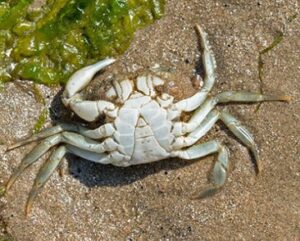
Defra accused of ‘remarkably poor scientific practice’ over crabs
University academics have criticised a government-commissioned report into mass crab die-offs on England’s north-east coast, with one accusing it of “remarkably poor scientific practice”, and they pledged to continue their research into the matter. The academics, from the universities of Newcastle, Durham and York, believe pollution caused crab and lobster deaths rather than a new pathogen, which a report from the environment department found to be the most likely cause of the deaths despite no direct evidence for such a disease. The report, and its criticisms, follow controversy over an unusually large number of dead or dying crabs and lobsters found along the north-east coast of England in the autumn and winter of 202. >click to read< 16:11
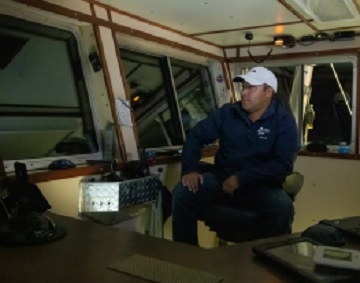
How new fishing technology could help save North Atlantic right whales
Captain Martin Noel and his crew have returned to the fishing grounds to retrieve their crab traps from the Gulf of St. Lawrence, about 140 kilometres off Shippagan, N.B. At the press of a button on Noel’s smartphone, an acoustic signal from a floating transducer pings an oxygen tank at the bottom of the ocean. That cues the tank to inflate a buoy, in turn, sending to the surface a line of traps from 300 feet below. Brimming with one of Canada’s most lucrative seafood catches, snow crab, these on-demand traps are pivotal to Canada’s plans to protect one of the world’s most critically endangered populations of large whales. >click to read< 10:06
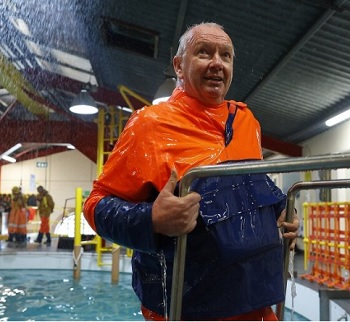
FISHERS GAIN VITAL ‘MAN OVERBOARD’ EXPERIENCE AT DONEGAL TRAINING CENTRE
Thirty-five fishers gained life-saving training at Man Overboard sessions in the Errigal Training Centre, Falcarragh, Co. Donegal this weekend. The classes were provided free of charge by Bord Iascaigh Mhara (BIM), Ireland’s Seafood Development Agency, in partnership with the RNLI. The sessions are designed to provide fishers with the experience of falling into cold sea conditions, wearing full work clothing and without their Personal Floatation Device (PFD), or lifejacket as they are commonly known. This is then followed by the same experience with a correctly fitted PFD. >click to read< 08:31
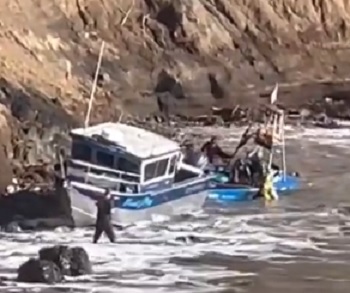
FUNDRAISER FOR OWNER OF BOAT DAMAGED WHEN TRYING TO HELP ANOTHER
Locals are jumping in to help Luke Sack, a local crabber, whose boat was damaged while trying to help another boat that got into trouble in Shelter Cove yesterday. The organizer, Lisa Machi Pleger wrote, “On Saturday January 21st Luke set out to retrieve his crab when he noticed a sport boat in distress, Luke did what any hero would do and came to their rescue only to end up in trouble himself. His boat washed ashore and was severely damaged. Many of his electronics are ruined, along with his motors and the vessel itself. >click to read< the rest, and please, donate if you can! 18:33
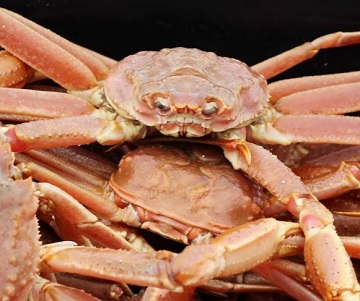
N.L. snow crab sales to Japan displaced by Russia
While many countries are imposing sanctions on Russia as a result of the war in Ukraine, Japan is taking advantage of low Russian snow crab prices. Clifford Small, MP for Coast of Bays-Central-Notre Dame and federal fisheries critic, says that is preventing Newfoundland and Labrador processors from selling their crab to Japan, as they normally do. “To have one of our major markets dry up on us, and to dry up in a sense that basically they started buying from a country like Russia — that’s at war in Ukraine — flies in the face of what you’d expect from a great trading partner and an ally,” he said. >click to read< 15:44
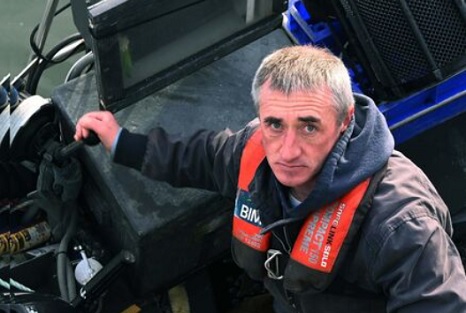
Calls for €12m fund to help inshore fishing industry
The Government is to be asked to give Ireland’s inshore fishers more than €12m to help them deal with the disruption to their markets caused by the war in Ukraine and the pandemic. The market in shrimp, for example, has collapsed, with one group of around 600 smaller inshore fishers losing an estimated total of €5m in the build-up to last Christmas. Their representatives have seen more than €100m in packages to help the much larger, offshore sector boat owners deal with the negative impacts of Brexit, which is mainly the cut in quota and resulting 40% fall in income. But they say that despite having 91% of the country’s entire fishing fleet, and employing the majority of Irish fishers, Ireland’s inshore sector has, by comparison, received around €3.7m. >click to read< 11:26
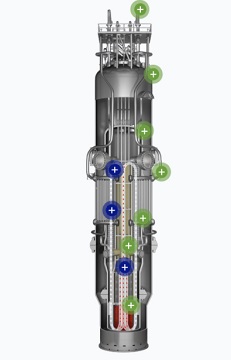
1st small modular nuclear reactor certified for use in U.S.
The U.S. Nuclear Regulatory Commission has certified the design for what will be the United States’ first small modular nuclear reactor. The rule that certifies the design was published Thursday in the Federal Register. It means that companies seeking to build and operate a nuclear power plant can pick the design for a 50-megawatt, advanced light-water small modular nuclear reactor by Oregon-based NuScale Power and apply to the NRC for a license. It’s the final determination that the design is acceptable for use, so it can’t be legally challenged during the licensing process when someone applies to build and operate a nuclear power plant, NRC spokesperson Scott Burnell said Friday. The rule becomes effective in late February. >click to read< 10:32
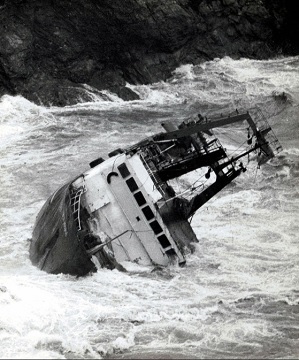
Falmouth low tide reveals wreck of Scottish trawler Ben Asdale that was swept onto rocks 44 years ago
Cornwall’s coastline is strewn with shipwrecks. More than 3,000 are recorded around our shores, with most hidden below the surface of the sea, or buried under the sands of time on our beaches. However, there are a few shipwrecks in Cornwall that can be seen at low tide – those more recent wrecks that remain where they met their peril on the rocks. Here, they slowly rust, bend and disintegrate into their surroundings – broken down by years of gentle tides and raging storms. The skeletal remains of one such wreck can still be seen at low tide below cliffs near Falmouth. Just around the corner from Maenporth Beach, below Newporth Head, lies the wreck of Scottish trawler Ben Asdale, where it was swept upon the rocks one fateful night, 44 years ago. 24 photos, >click to read< 09:36
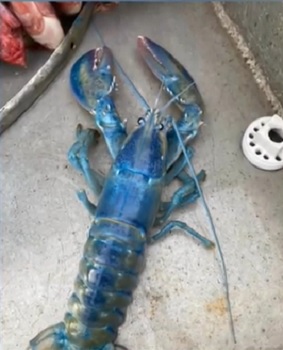
Blue lobster caught by New Hampshire fisherman off Isle of Shoals
A New Hampshire fisherman was in for an exciting surprise when he caught a blue lobster by the Isle of Shoals. Jake Eaton, who caught the lobster, said this is something that doesn’t happen every day. He said he gets out to haul three to four times a week and has been fishing for about a decade. “Fishermen are fortunate to see the things we get to see, you know, with all the wildlife and everything. So just try not to take it for granted and just realize how lucky we are to get to experience it,” Eaton said. >click to read< 08:11
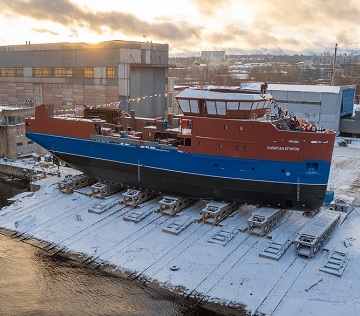
Russian Crab Renews Fleet
One of Russia’s big players, Russian Crab, is in the process of renewing its fleet of elderly vessels with new tonnage, and the first of these new crab catchers have been floated off for outfitting. The company is building both vivier crabbers at the Onega Shipyard, while processor vessels are taking shape at the Okskaya Sudoverf JSC shipyard. Vivier crabber Kapitan Egorov was launched at Onega in Petrozavodsk at the end of last year,,, These CCa 5712LS series vessels are designed to work under the challenging conditions of the Bering Sea, the Sea of Okhotsk and the Sea of Japan, and are being outfitted with systems that are new to the Russian fishing sector, with circulation systems to keep crab in prime condition. These come with monitoring systems for temperature, air volume in the tanks and the oxygen content of the water, with data transferred automatically to the wheelhouse and to the office ashore. Photos, Video, >click to read< 20:10
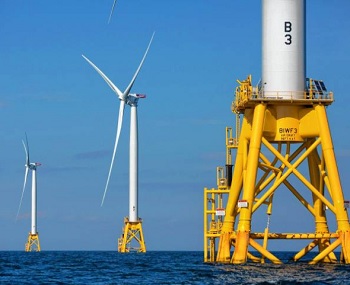
A Letter to the Editor: Wind farm utility causing onshore problems
New England has regional noise/vibration problems since the Block Island Wind Farm started. Indeed, one could note, regional wind turbines no longer typify “green energy.” In addition to air storage batteries being secretly installed on Beavertail in Jamestown to facilitate retention of unpredictable wind power, the regional power grid has been secretly raised to a higher power level to capture more irregular wind power for investors. However, that higher grid power has caused widespread environmental pressure, including water and sewer pipe separations, gas line issues and vibrations. Yards, floors and in-house glass vibrate. Light bulb filaments and wall clock parts have separated. >click to read< by Donna Cameron Gricus, Jamestown, R.I. 14:47
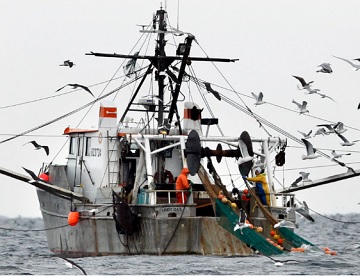
New monitoring rules for Northeast fishermen
Changes to U.S. rules about the monitoring of Northeast commercial fishing activities are going into effect this month with a goal of providing more accurate information about some of the nation’s oldest fisheries. The U.S. mandates observers to work onboard fishing boats to collect data and make sure fishermen adhere to rules and quotas. The National Marine Fisheries Service has adopted new monitoring rules for Northeast fishermen of groundfish, like haddock and flounder, to try to improve the accuracy of the data. >click to read< 11:57
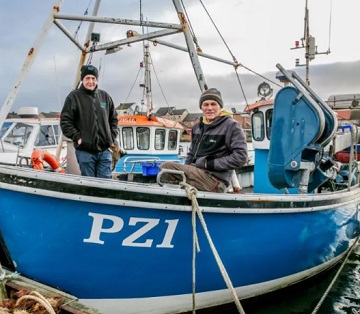
‘What about us?’
Forgotten fishermen caught in the middle of a storm over the North Sea crustacean deaths last night asked ‘what about us’, after a report into the wash-ups was published. Fishermen working off the Teesside coast have told how they’re struggling to make a living with depleted numbers of sea life following mass deaths. A fresh report into the deaths released at noon on Friday was unable to find a conclusive cause for the mass wash-ups. Hartlepool Fisherman Paul Graves said: “If my wife stopped working I would be screwed. “I used to go two miles out and would never go more than six, but now I have to go 20 miles out to have any chance of catching anything. >click to read< 10:28
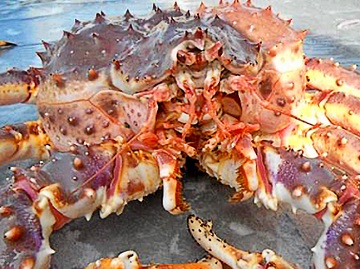
NOAA denies emergency request to close red king crab savings areas
The National Oceanic and Atmospheric Administration has denied an emergency request Friday to close crucial habitat for Bristol Bay red king crab to all types of commercial fishing. That comes after Alaska Bering Sea Crabbers petitioned in late September for a closure of the red king crab savings areas to protect the species during a time of historically low stocks. The savings area was established in 1996 and is permanently closed to bottom trawling, but it remains open to midwater trawlers, pot fishing and longlining. Bottom trawling is allowed, however, in a small section within the savings area, known as the savings subarea, when Bristol Bay red king crab is not open to directed fishing. >click to read< 09:15
Press release – NOAA Fisheries Denies Request for Emergency Action to Close the Red King Crab Savings Area and Subarea – >click to read<
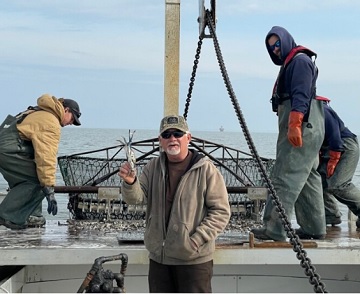
Here’s why workers are digging Chesapeake Bay blue crabs out of the mud this month
On a recent gray January morning, they were working a section of the upper Chesapeake Bay off Rock Hall on the Eastern Shore. Capt. Roger Morris, a Dorchester County waterman who works under contract with the state’s department of natural resources, dropped a Virginia dredge off the stern of F/V Mydra Ann, his 45-foot Bay workboat, and let the attached chain pay out until the dredge hit bottom 20-some feet below, jolting the boat. A Virginia dredge refers to an eight foot wide piece of equipment with an attached net that gets dropped into the water to dredge for crabs. Morris eased the throttle forward and dragged the dredge through the mud for one minute at three knots, then hauled it back up, pausing to rinse the mud out before bringing it on board. photos, >click to read< 19:08
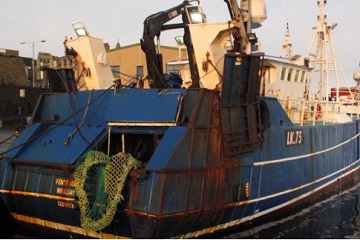
Squid at record levels around Shetland
While haddock continues to be the most abundant stock, more than three times the average amount of squid was identified by the 2022 Shetland Inshore Fish Survey (SIFS) carried out by UHI Shetland. Environmental change is the most likely explanation for the phenomenon, given that squid are relatively short-lived and breed only once. ‘The high catches of squid recorded in 2022 were a widespread feature of the data in that they were observed in survey areas all around Shetland. Overall, these catches corresponded to the highest relative abundance of squid yet recorded in the survey timeseries,’ said Dr Shaun Fraser, Senior Fisheries Scientist at UHI Shetland. >click to read< 12:25
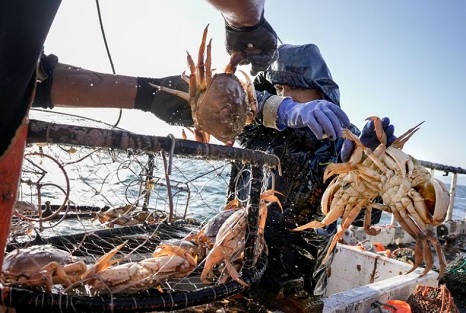
How valuable, and volatile, crabbing can be along the Oregon Coast
On a calm morning last May, the three-person crew of the FV Misty dropped into the Pacific Ocean off of Port Orford, in Southern Oregon, to catch a small piece of a large fortune. It’s not easy money though, by any stretch. A day of pulling in hundreds of crab pots is relentless and fast-paced work, requiring razor-sharp choreography from a seasoned crew. Boat captain Aaron Ashdown can remember joining the family business when Dungeness crab was worth $2.50 per pound in starting price. “My dad told me, because a crab is about maybe two pounds, ‘There’s just little $5 bills all over the bottom of the ocean and all we got to do is go out there and pick them up.’” By the 2022 season, that value had risen to a record $5 starting price, unprecedented for Oregon. Interesting video, photos, >click to read< 11:06
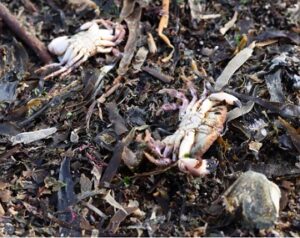
No definite answer to cause of mass crab deaths on north-east coast
Thousands of dead and dying crustaceans were found piled high along beaches along the north-east coast of England during a three month period. Research by academics, backed by the fishing industry, suggested the incident could have been caused by industrial pollutant pyridine, possibly from dredging in the mouth of the River Tees to maintain channels for port traffic. However this has now been deemed “exceptionally unlikely”. And while the panel said it was impossible to give a definitive answer using current data, it concluded on Friday that it was “about as likely as not” that a pathogen new to UK waters – a potential disease or parasite – caused the crab deaths. >click to read< 09:52
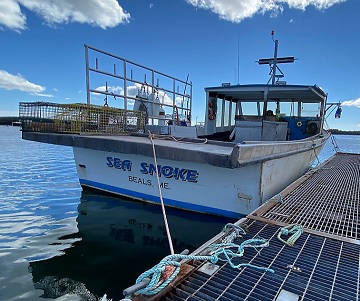
Maine lobster industry must accept that ‘big changes are coming’ despite delay in federal rules, commissioner says
“The work now is critical,” DMR Commissioner Patrick Keliher told the Lobster Advisory Council Wednesday. “The buy-in is critical. The data we’re going to be collecting over the next four years is critical. We can’t have infighting. We have to accept big changes are coming. ”Those changes could include additional regulations to make ropes weaker, a move toward ropeless lobster traps and additional restrictions on fishing grounds. Between now and then, the industry needs to report its harvest to federal officials, participate in a vessel tracking program and find ways to help monitor where endangered whales are migrating, Keliher said. >click to read< 08:49
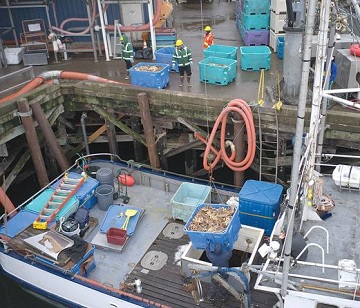
Boats begin offloading crab
After a month-and-a-half delay, Oregon’s commercial Dungeness crab season is underway along at least part of the coast, and crab boats have been busy, already hauling significant catches back to port to be offloaded at the docks. Tim Novotny is the executive director of the Oregon Dungeness Crab Commission, an industry-funded agency established by the Oregon Legislature in 1977 to serve as an advocate for the crabbing industry. When Novotny was asked for his initial thoughts on this year’s season, he said, “It’s been a ball of yarn,” adding that it’s pretty much the opposite of last year. Photos, >click to read< 07:57
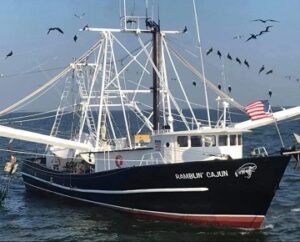
Louisiana Shrimping Industry Faces Uncertain Future in 2023
Shrimpers now face some of the lowest prices they have ever seen due to massive amounts of shrimp being imported from overseas, according to Larose-based trade group Louisiana Shrimp Association. Acy Cooper Jr, the Louisiana Shrimp Association’s president, says the math around shrimp imports are simply not in the Louisiana shrimp industry’s favor. With Louisiana able to meet roughly 25% of the overall U.S. shrimp market demand – shrimp importers from countries like Thailand, Vietnam and Indonesia have brought to market more shrimp than the United States will typically consume each year, driving the price on the open market for Louisiana shrimp lower and lower. >click to read< 13:53






